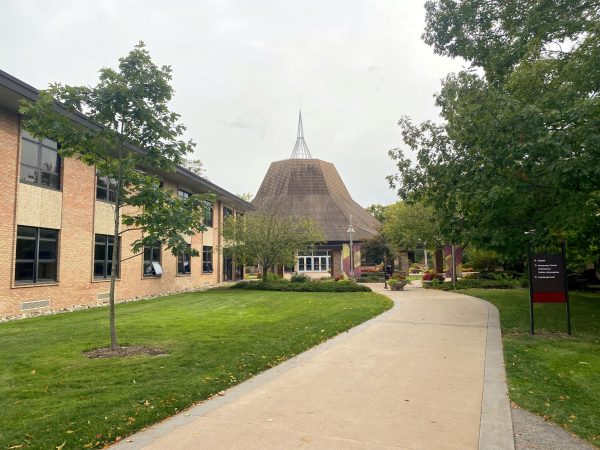Ben Carson – Where the conflict really lies
In an interview with “Meet the Press” in September, presidential candidate Ben Carson was asked, “Do you believe that Islam is consistent with the Constitution?” Carson responded by saying, “No, I don’t, I do not. I would not advocate that we put a Muslim in charge of this nation. I absolutely would not agree with that.”
Carson’s reply has received mixed reviews across the country from members of both the Democratic and Republican parties. Fellow presidential candidate Ted Cruz, a Republican Texas senator, responded to Carson by referencing the sixth article of the Constitution that states, “No religious test shall ever be required as a qualification to any office or public trust under the United States.”
Besheer Mohammad from the Pew Research Center reports that Carson’s expressed sentiment toward a hypothetical Muslim candidate is not a new phenomenon. According to Mohammad these negative views of Muslims in America “have been relatively stable” for a number years. For the past 10 years, when Americans have been asked if Islam is more likely than other religions to encourage violence survey responses have ranged between 40 and 50 percent. And approximately 45 percent of responses said that they were less likely to vote for a Muslim candidate. This statistic is contrasted with the 25 percent of Americans that said they would not vote for an evangelical Christian candidate.
Although according to a recent Gallup Poll, Carson’s view is supported by a significant number of members and supporters of the Republican Party. The results of the poll showed that approximately 45 percent of Republicans would vote for a Muslim candidate.
Amy Walter from the Cook Political Report suggests that Carson’s anti-Muslim stance demonstrates the GOP’s longstanding ability to appeal to a strong voter base, noting that the part has historically done very well “among white voters, among conservative voters, among voters who don’t live in urban areas [and] among men.”
But it is also the Republican Party that has historically held a firm position on the preservation of and strict adherence to the Constitution. Yet Jonathan Greenblatt, director of the Anti-Defamation League, has said, “Dr. Carson’s statement directly contradicts the constitution and the values embodied in it. … In America, personal characteristics – whether race, sex, national origin, sexual orientation, gender identity or religion – should have no bearing on a person’s ability to serve.”
Many critics of Carson’s statement have advocated for the irrelevance of religion in voting trends and candidate selection. However, Trevin Wax, managing editor of The Gospel Project at LifeWay Christian Resources, has argued that a candidate’s religious view is important to consider, that religion still matters in the political sphere. Wax observes that the conflict in this Carson controversy really lies with the issue “secularists” have with people who take religion too seriously, in that American society is generally ambivalent about religion so long as it does not impinge upon one’s view of the world or how one votes or what platforms one endorses.
In a later interview with Jake Tapper on CNN, Carson expanded on his point by saying, “I would have problems with somebody who embraced all the doctrines associated with Islam. … If they are not willing to reject sharia and all the portions of it that are talked about in the Quran — if they are not willing to reject that, and subject that to American values and the Constitution, then of course, I would.”
Wax says that Carson’s statements are actually formulated from a strong understanding of the religion of Islam. Wax claims that Carson does believes that sharia law calls for a theocracy, which is incompatible with the religious pluralism that is at the heart of American society. Wax went on to say that since Carson takes his own religion seriously, he cannot believe that a Muslim that abides by sharia law and that takes their own religion seriously could avoid this issue.






